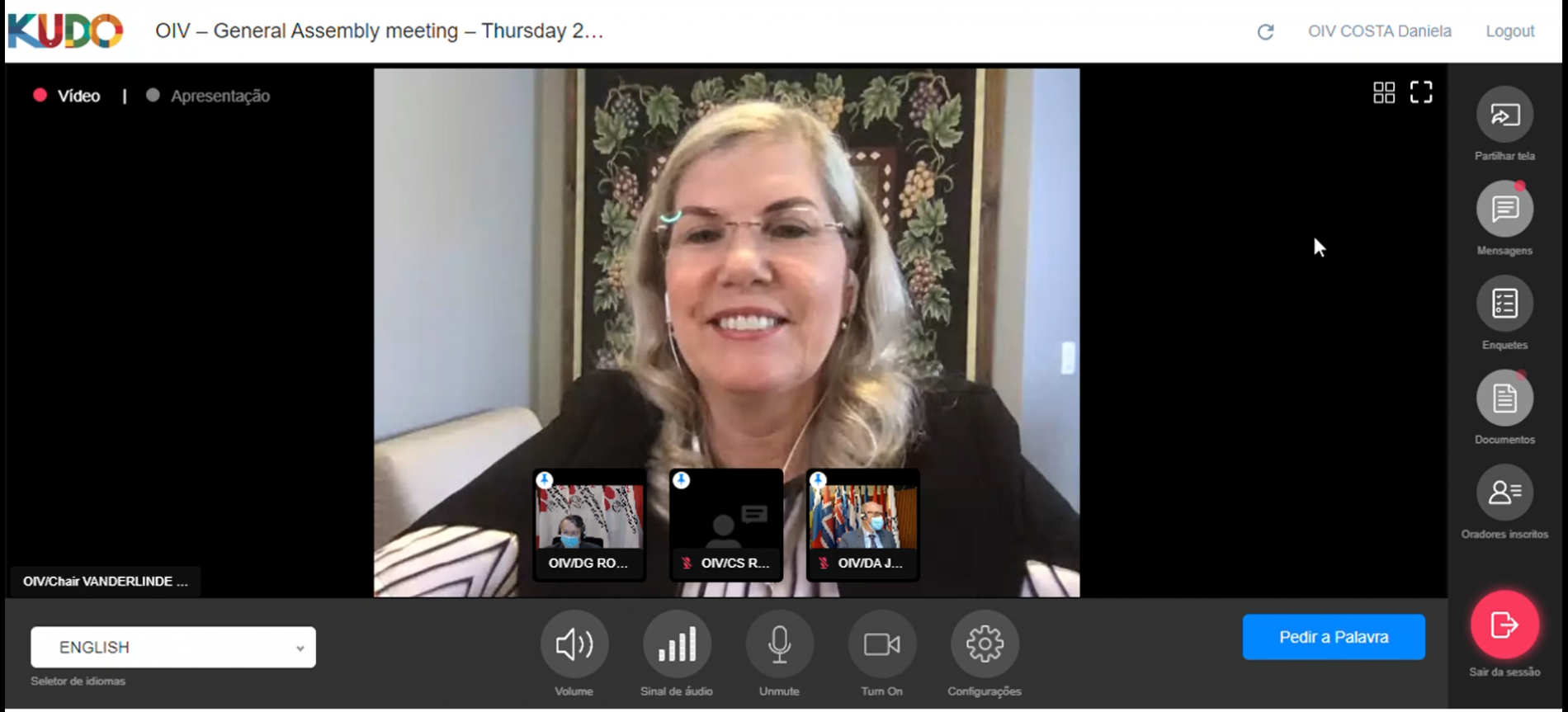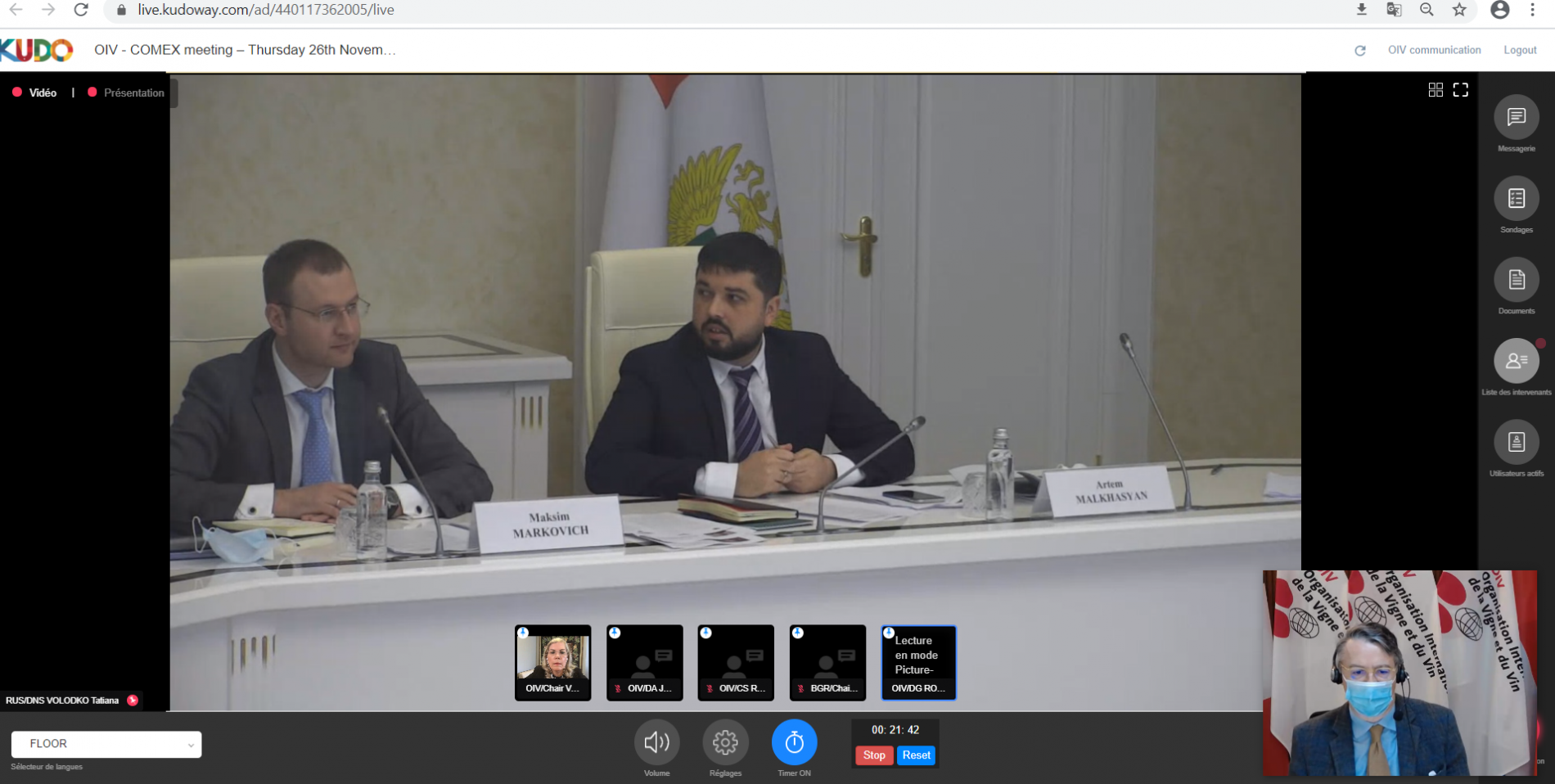On 26 November 2020, and for the first time in digital format, the 18th OIV General Assembly concluded a year of virtual meetings with the adoption of 18 new resolutions, support for the Organisation’s digitalisation project and progress on the future integration of Russian as an official language.

An ambitious digitalisation project under way
The OIV Member States are unanimous on the importance of development and digital adaptation, particularly in the current context, marked by the Covid-19 pandemic.
The objectives of the project now in progress include creating a global observatory on digital transformation in the vitivinicultural sector, developing a new system for the collection and development of data on the sector, creating a new OIV website, and deploying a new collaborative intelligence platform to improve communication between the OIV Secretariat and Member States. This December, a call for tenders will be issued for the implementation of the project, the duration of which will be three years starting from January 2021.
Russian: the new official language of the OIV?
The OIV has already recently announced that negotiations for adopting Russian as one of the OIV's official languages are under way. During the General Assembly, Maxime Markovich, Director of the Department of International Cooperation within the Ministry for Agriculture of the Russian Federation, presented the advantages of opening the OIV up to a new language. The Member States concurred with the benefits of this integration and agreed on the points to work on over the coming months – the conditions that will allow Russian to become the 6th official language of the Organisation. This new measure will enable the Russian-speaking community to better understand and take on board the international standards and practices the OIV has adopted to improve the conditions under which vine and wine products are produced and marketed.

New OIV resolutions
Sustainable development is a priority for the Organisation’s Member States, which, through the new Resolution OIV-VITI 641-2020, have approved the OIV Guide for the implementation of principles of sustainable vitiviniculture. This guide complements and updates all OIV recommendations in the area of sustainability.
Several resolutions relating to new oenological practices are to be added to the International Code of Oenological Practices of the OIV, such as the OIV Guide to identify hazards, critical control points and their management in the wine industry (HACCP) (Resolution OIV-OENO 630-2020). This guide is intended to harmonise the analysis of hazards, and to suggest, by way of example, risk levels and critical control points that might be encountered during the steps of wine production.
Among the decisions on economy and law, the OIV has adopted the definition of white wine with maceration (Resolution OIV-ECO 647-2020): white wine derived from alcoholic fermentation of a must with prolonged contact with grape pomace, including skins, pulp, seeds and potentially stems. This definition makes it possible to distinguish, in particular, wines obtained by the ancient Georgian method of winemaking in traditional Qvevris, inscribed on the UNESCO Representative List of the Intangible Cultural Heritage of Humanity in 2013.
Finally, the OIV has also adopted Guidelines for the evaluation of physical treatments of grapes and their derived products (Resolution OIV-SECSAN 664-2020).
See the complete summary of new resolutions
*The full texts of the resolutions adopted by the 18th OIV General Assembly will shortly be available here on the OIV website.